Video MGMT System
 Access Control
Access Control
Voice & Data Wiring
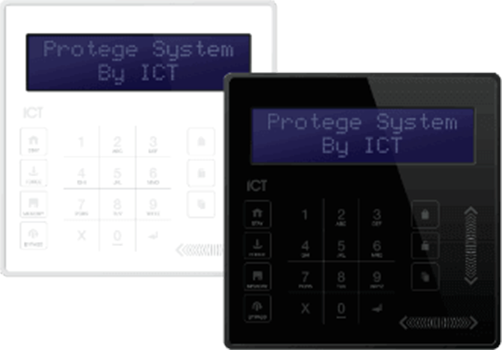 Burglar Alarm
Burglar Alarm
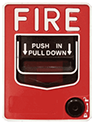 Fire Alarm
Fire Alarm
Video MGMT System
Voice & Data Wiring
Too busy to read? Here's a summary:
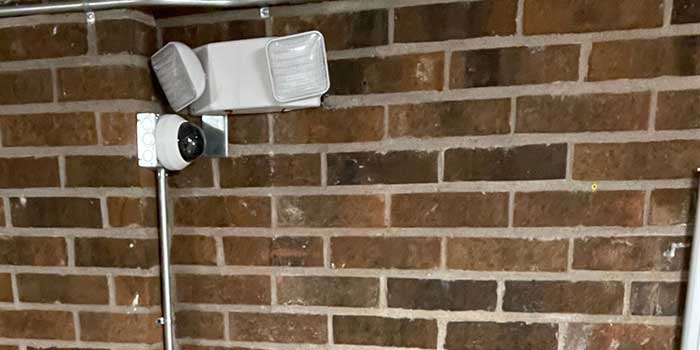
As the protector of your tenants and the guardian of your property, you understand the significance of a comprehensive surveillance system. Security cameras act as your eyes, deter criminal activity, and collect vital evidence.
But the world of property management is complex, and ensuring the safety of your tenants must be balanced with respect for their privacy.
That tricky balance is where the Mammoth Security team comes in.
Every state has its own laws regarding the use of audio and video recording devices, and the concepts of consent and a reasonable expectation of privacy play a significant role in how these laws are applied.
A "reasonable expectation of privacy" is a legal concept that suggests individuals have a right to privacy in places that "a reasonable person" would expect to be private.
For example, tenants might not have a reasonable expectation of privacy in an apartment complex's gym, but they would certainly have such an expectation within their own apartment unit.
Because there's quite a bit of subjectivity built into the concept of a reasonable expectation of privacy, it's wise to gain prior consent for recording or ensure that there are no reasonable arguments for an expectation of privacy.
Expressed consent occurs when a person clearly and explicitly gives permission to be recorded, often in writing. For example, a tenant might sign a lease agreement that includes a clause allowing for video surveillance in certain areas of the apartment complex.
Implied consent, on the other hand, is not explicitly given but is instead inferred from a person's actions. For example, people grant implied consent when they choose to enter monitored areas with signage despite the signage.
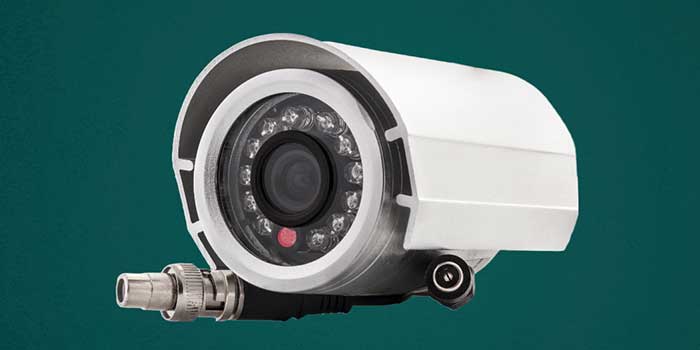
It's important for apartment building owners to understand the difference between video and audio recording laws.
Generally, video recording is permissible in public areas of an apartment complex, such as hallways, parking lots, elevators, and lobbies. This is because these are areas where individuals typically do not have a reasonable expectation of privacy.
However, audio recording with security cameras is a different matter. Federal and state laws often prohibit the surreptitious recording and monitoring of audio.
In fact, the expressed or implied consent of all parties is generally necessary to legally record or monitor audio with security cameras. This means that if a property manager wishes to include audio recording in their security plan, they must obtain prior expressed or implied consent from the individuals being recorded.
The good news is that implied consent for audio recording in public areas is easy to attain: when notices explaining that audio recording may occur are prominently placed at entrances, there can be no expectation of privacy, and consent is implied.
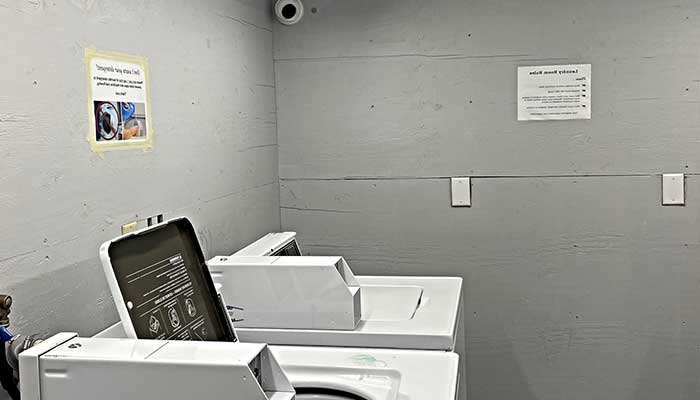
Install cameras in public areas only, such as entrances, hallways, parking lots, and laundry rooms. Avoid pointing cameras towards private areas, such as apartment windows or balconies. Adjust the angles of your cameras to focus only on the areas you want to install security cameras for monitoring.
Modern surveillance systems often have AI-supported masking features. Camera masking, also known as privacy masking or blinding, is used to shield the inside of apartment units, bathrooms, and other private areas from cameras pointed in their general direction. With masking, cameras are able to monitor public areas of apartment buildings or complexes without infringing on a tenant's reasonable expectation of privacy.
Simply put, if a security camera is positioned to monitor a hallway but may capture the inside of an apartment unit when the door is open, the property manager can activate masking to block out the area of the video feed that would otherwise capture the inside of the tenant's unit.
If signs are posted at entrances to apartment buildings stating that video or audio surveillance is occurring, there can be no reasonable expectation of privacy in public areas like hallways.
When people choose to enter such areas despite clear signage, they have given their implied consent for both audio and visual monitoring.
Clear signage also serves as a deterrent to potential wrongdoers.
Understanding state laws and current rental agreements is crucial before you proceed with camera installation. To be safe, always make sure that tenants are informed about the presence of the cameras and add clauses about surveillance to lease or rental agreement templates.
Another best practice is to have a clear privacy policy in place that outlines how long footage is stored, who has access to it, and under what circumstances it may be shared.
Regularly review recording device footage and the positioning of cameras to ensure that they are not accidentally capturing private information.
For example, when using a camera's masking feature, review footage routinely to ensure that the masks stay in their correct position.
As audio recording laws tend to be stricter than video recording laws, consider deactivating your cameras' audio-recording features or sticking with video-only surveillance equipment.
When installing surveillance equipment, consult with a security professional or legal advisor familiar with your jurisdiction. The professional installers at Mammoth Security can ensure that all your cameras are properly positioned or masked to respect tenant privacy laws.
Legal Disclaimer: The information provided on this website does not, and is not intended to, constitute legal advice; instead, all information, content, and materials available on this site are for general informational purposes only. Readers of this website should contact their attorney to obtain advice with respect to any particular legal matter.
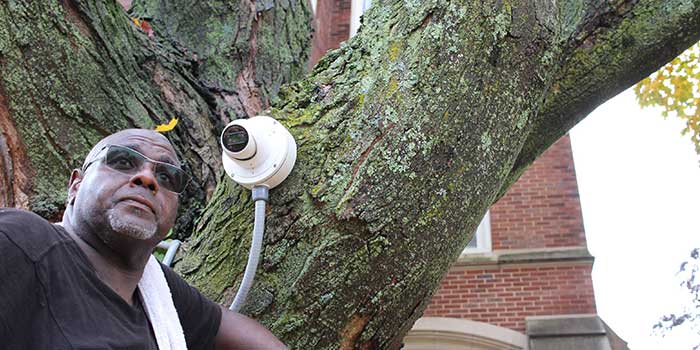
From outdoor installations that monitor areas like entrances and parking lots to indoor installations that monitor areas like laundry rooms and gyms, proper placement of CCTV cameras requires knowledge and careful planning.
It isn't merely about picking a spot and drilling a hole. It's about understanding the layout of your building so that the video surveillance cameras' field can be optimized without running afoul of the law.
To set up a free site survey and security consultation with a friendly expert from the Mammoth team, please fill out the simple form below—and we'll get back to you fast!
NOT COMPLETELY SURE?
860-748-4292At Mammoth Security, we never install hidden surveillance cameras in private areas, such as inside apartment units, as this infringes on a tenant's reasonable expectation of privacy. Always comply with the security camera laws of your state to ensure both the security and privacy rights of your tenants.
As long as cameras are in plain sight and their presence has been communicated to tenants, you generally have the right to install surveillance cameras to monitor communal areas visually. However, it's always best to consult with a professional to ensure compliance with all local and state laws.
Yes, laws often cover aspects like the placement of outdoor cameras. The key is to ensure that they don't infringe on another person's reasonable expectation of privacy. For example, a camera in a private backyard shouldn't capture footage of your neighbor's private property either.
Security is a top concern for property owners and managers. Our team at Mammoth Security is experienced in installing security cameras strategically to respect the reasonable expectation of privacy held by tenants. Be it indoor or outdoor security cameras, we've got you covered.
Absolutely, we can install WiFi cameras or a complete WiFi camera system in your apartment building.
While you can install your own security cameras, it's important to understand that security system installation requires more than just a physical setup. It's about understanding and complying with security camera laws, ensuring a reasonable expectation of privacy for tenants, and choosing the right cameras. These processes can be complex, which is why we recommend partnering with professionals like Mammoth Security.